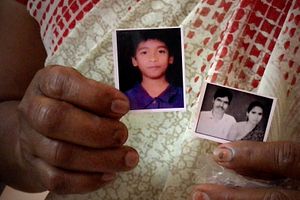Their husbands were brutally killed in a spate of violence against Christians in Kandhamal district of the east India’s Odisha state. Although the murders happened almost nine years ago, in August 2008, Ludhya Digal and Asmita Digal (not related) have not been able to move on or have any sense of normalcy.
The two women say they remain strong in their Christian faith, although it was their religious identity that became the reason for their targeting in December 2007 and again in August 2008 in Kandhamal, where the killing of a Hindu nationalist leader was falsely attributed to local Christians. Maoists claimed responsibility for the assassination, but local rightwing Hindu leaders insisted the man was killed by Christians.
The widows’ prolonged grief is now accentuated by their continued lack of financial resources. If there is one thing that can give them some respite, it’s employment, they say. They need little, an amount that people in cities like Delhi might spend on one evening’s meal in a restaurant. They have requested jobs from the local authorities, but their wait continues.
Vishal Arora and and Parul Abrol interviewed Ludhya Digal and Asmita Digal in Delhi, where they came for the launch of a book, Kandhamal: Introspection of Initiative for Justice 2007-2015. The book says justice has eluded the victims and their families after the violence hit them. Written by Vrinda Grover and Saumya Uma, the book stresses that there exists a “clear and visible pattern of impunity and injustice seen in the aftermath of the Kandhamal violence, which conforms to the pattern in past instances of communal violence” in India, against the minority communities of Muslims, Sikhs, and Christians.
Shot and edited entirely on a smartphone, without any accessories, the video features the plight of the two widows who are still awaiting closure.

































